Burdened with Glorious Purpose: Woodrow Wilson and the League of Nations
Manage episode 328917901 series 3350741
Woodrow Wilson believed he and he alone could end war--forever. His plan for the League of Nations would usher in an era of eternal peace. So it really hurt the president's feelings when not everyone agreed with his vision.
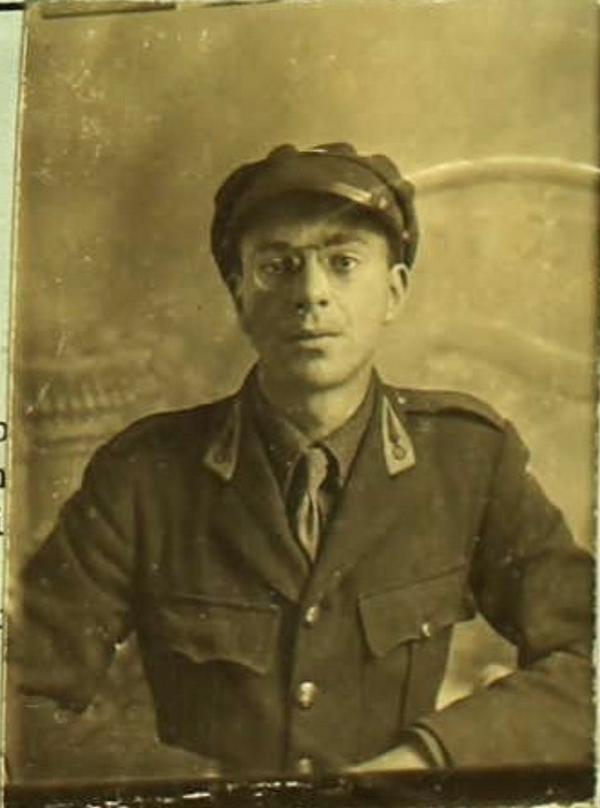
American author John Dos Passos in his World War I uniform. Dos Passos spent 1919 traveling around Europe and wrote about the adoration of ordinary people for Woodrow Wilson. The story about the baker from Belfort was included in essay titled "America and the Pursuit of Happiness" and published in The Nation on December 29, 1920. The essay is included in John Dos Passos: The Major Nonfictional Prose. The book is out of print, but you can find it at libraries.
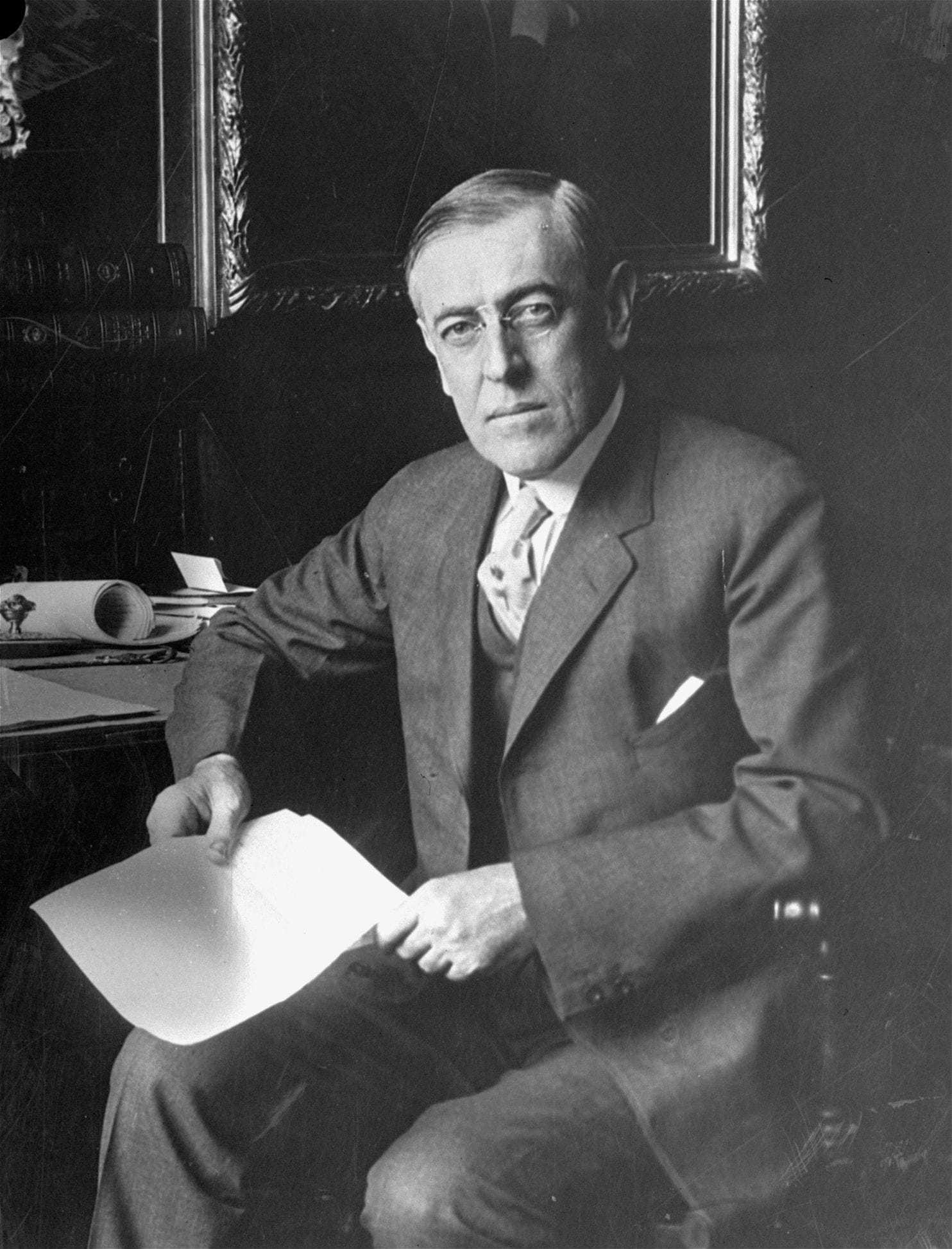
President Woodrow Wilson believed himself a pure and shining force for good. He had many fine traits, including an inspiring faith in the potential of humankind, but modesty was not among them.
Wilson outlined his Fourteen Points in a speech on January 8, 1918.
General Principles
- Open covenants of peace, openly arrived at, after which there shall be no private international understandings of any kind but diplomacy shall proceed always frankly and in the public view.
- Absolute freedom of navigation upon the seas, outside territorial waters, alike in peace and in war, except as the seas may be closed in whole or in part by international action for the enforcement of international covenants.
- The removal, so far as possible, of all economic barriers and the establishment of an equality of trade conditions among all the nations consenting to the peace and associating themselves for its maintenance.
- Adequate guarantees given and taken that national armaments will be reduced to the lowest point consistent with domestic safety.
- A free, open-minded, and absolutely impartial adjustment of all colonial claims, based upon a strict observance of the principle that in determining all such questions of sovereignty the interests of the populations concerned must have equal weight with the equitable government whose title is to be determined.
Territorial Issues
- The evacuation of all Russian territory and such a settlement of all questions affecting Russia as will secure the best and freest cooperation of the other nations of the world in obtaining for her an unhampered and unembarrassed opportunity for the independent determination of her own political development and national policy and assure her of a sincere welcome into the society of free nations under institutions of her own choosing; and, more than a welcome, assistance also of every kind that she may need and may herself desire. The treatment accorded Russia by her sister nations in the months to come will be the acid test of their good will, of their comprehension of her needs as distinguished from their own interests, and of their intelligent and unselfish sympathy.
- Belgium, the whole world will agree, must be evacuated and restored, without any attempt to limit the sovereignty which she enjoys in common with all other free nations. No other single act will serve as this will serve to restore confidence among the nations in the laws which they have themselves set and determined for the government of their relations with one another. Without this healing act the whole structure and validity of international law is forever impaired.
- All French territory should be freed and the invaded portions restored, and the wrong done to France by Prussia in 1871 in the matter of Alsace-Lorraine, which has unsettled the peace of the world for nearly fifty years, should be righted, in order that peace may once more be made secure in the interest of all.
- A readjustment of the frontiers of Italy should be effected along clearly recognizable lines of nationality.
- The people of Austria-Hungary, whose place among the nations we wish to see safeguarded and assured, should be accorded the freest opportunity to autonomous development.
- Romania, Serbia, and Montenegro should be evacuated; occupied territories restored; Serbia accorded free and secure access to the sea; and the relations of the several Balkan states to one another determined by friendly counsel along historically established lines of allegiance and nationality; and international guarantees of the political and economic independence and territorial integrity of the several Balkan states should be entered into.
- The Turkish portion of the present Ottoman Empire should be assured a secure sovereignty, but the other nationalities which are now under Turkish rule should be assured an undoubted security of life and an absolutely unmolested opportunity of autonomous development, and the Dardanelles should be permanently opened as a free passage to the ships and commerce of all nations under international guarantees.
- An independent Polish state should be erected which should include the territories inhabited by indisputably Polish populations, which should be assured a free and secure access to the sea, and whose political and economic independence and territorial integrity should be guaranteed by international covenant.
The League of Nations
- A general association of nations must be formed under specific covenants for the purpose of affording mutual guarantees of political independence and territorial integrity to great and small states alike.
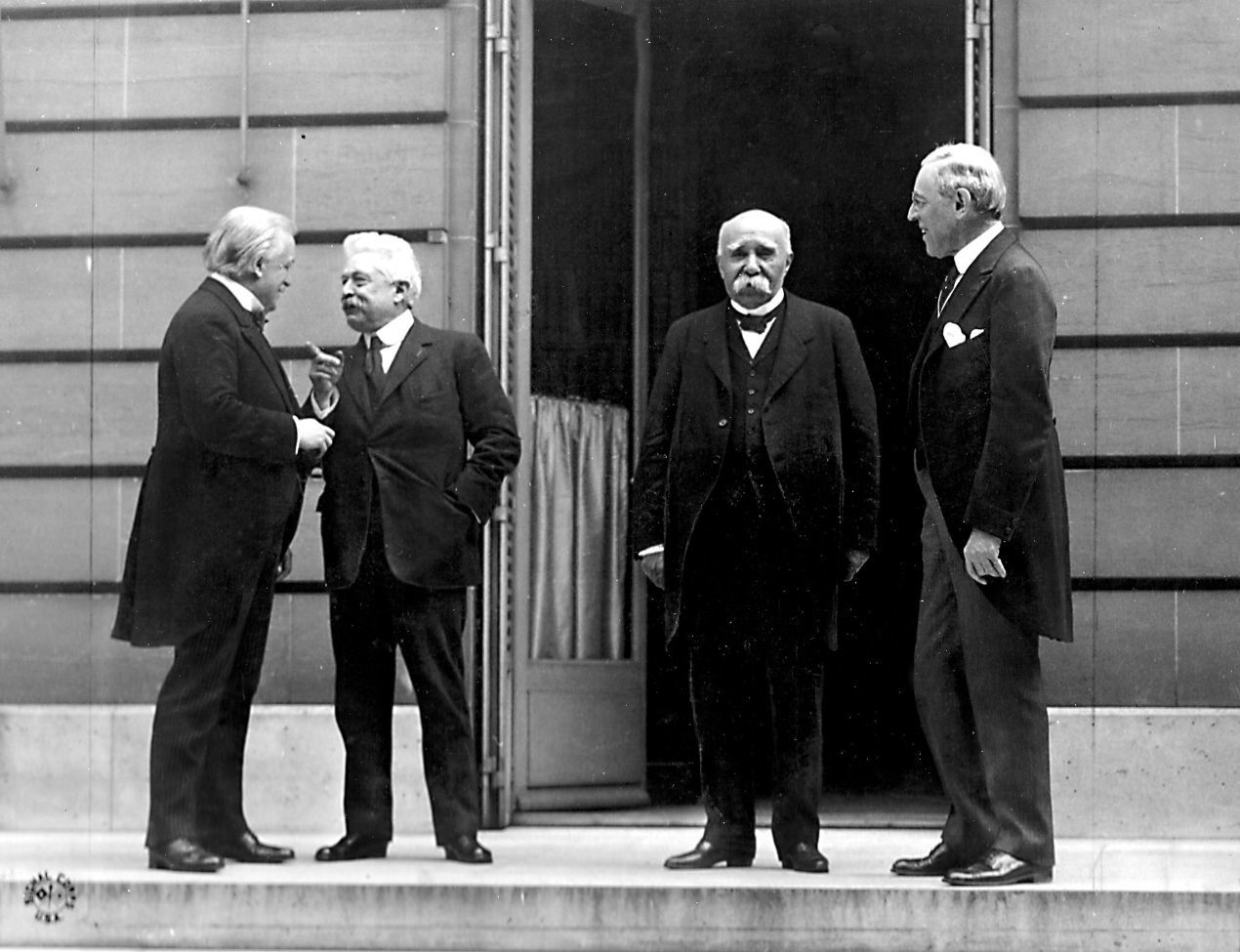
Decisions at the Paris Peace Conference were supposed to be made by a council of four, pictured here. Left to right, they were British Prime Minister David Lloyd George, Italian Premier Vittorio Orlando, French Premier Georges Clemenceau and US President Woodrow Wilson. In reality, Orlando had very little influence.
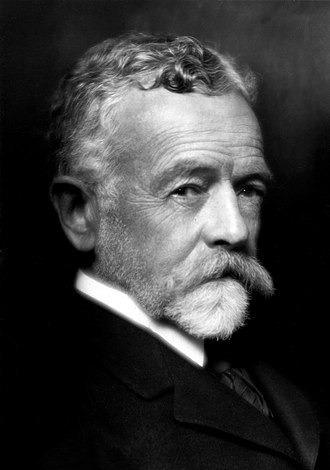
Senator Henry Cabot Lodge, a Republican from Massachusetts, opposed the League of Nations covenant as it had been written but was willing to accept it with amendments and reservations. He deeply disliked Wilson, once stating, "I never expected to hate anyone in politics with the hatred I feel for Wilson."
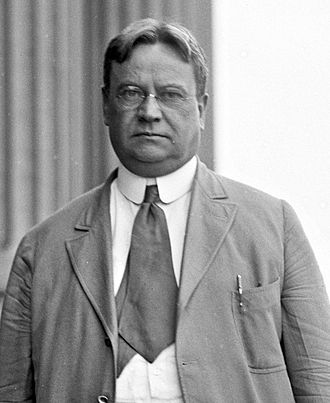
Senator Hiram Johnson of California was one of the "irreconcilables" who considered the League of Nations unconstitutional. He fought hard against the League throughout 1919. The speech that I excerpted was read by an actor in a production called "Great Senate Debates: The League of Nations" by the Edward M. Kennedy Institute for the United States Senate. You can see the entire documentary here.
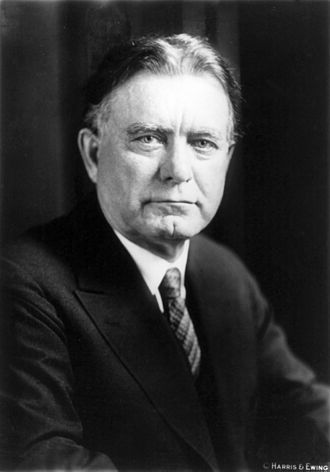
Senator William Borah, a Republican from Idaho, was another Irreconcilible who rejected American involvement in the League of Nations in any form. His speech denouncing the League was one of the most emotional moments during the final push for a vote on the Senate Floor. The excerpt from Borah's speech is also read by actor and from "Great Senate Debates: The League of Nations."
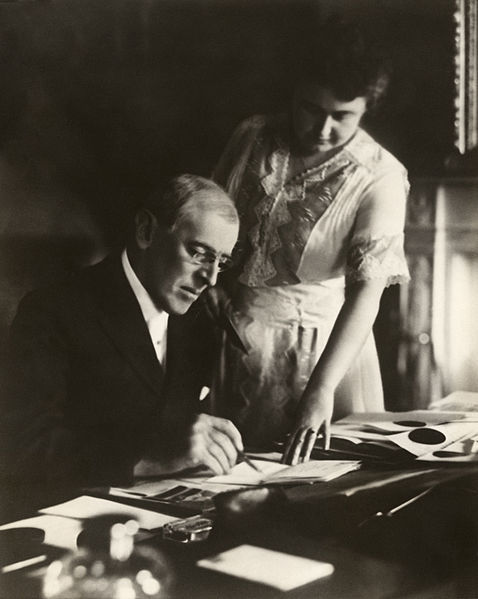
First Lady Edith Wilson was fiercely protective of her husband after his stroke in October 1919. She controlled all access to the president for months. She passed along decisions that she claimed had been made by her husband, but it's not clear if he was capable of even of communicating during this time. Some historians have suggested that in a weird, unconstitutional way, Edith Wilson was the first female president of the United States.
- Please note that the links below to Amazon are affiliate links. That means that, at no extra cost to you, I can earn a commission if you click through and make a purchase. (Here's what, legally, I'm supposed to tell you: I am a participant in the Amazon Services LLC Associates Program, an affiliate advertising program designed to provide a means for me to earn fees by linking to Amazon.com and affiliated sites.) However, I only suggest books that I have used and genuinely highly recommend.
Links:
- Paris 1919: Six Months That Changed the World by Margaret MacMillan — MacMillan's book is the definitive guide to the Paris Peace Conference. The book conveys the personalities of the major players while clearly explaining the incredibly complicated and knotty process of making peace.
- The World Remade: America in World War I by G. J. Meyer — In the last quarter of this comprehensive book, Meyer presents a clear narrative about the battle over the League of Nations, both at home and in Paris.
- Woodrow Wilson: A Biography by John Milton Cooper, Jr. — Woodrow Wilson tends to prompt strong feelings among historians, biographers, and even humble podcasters. Obviously, I am not immune. Cooper's biography manages to be both sympathetic and clear-eyed, no easy task when it comes to the 28th president.
27 episodes




